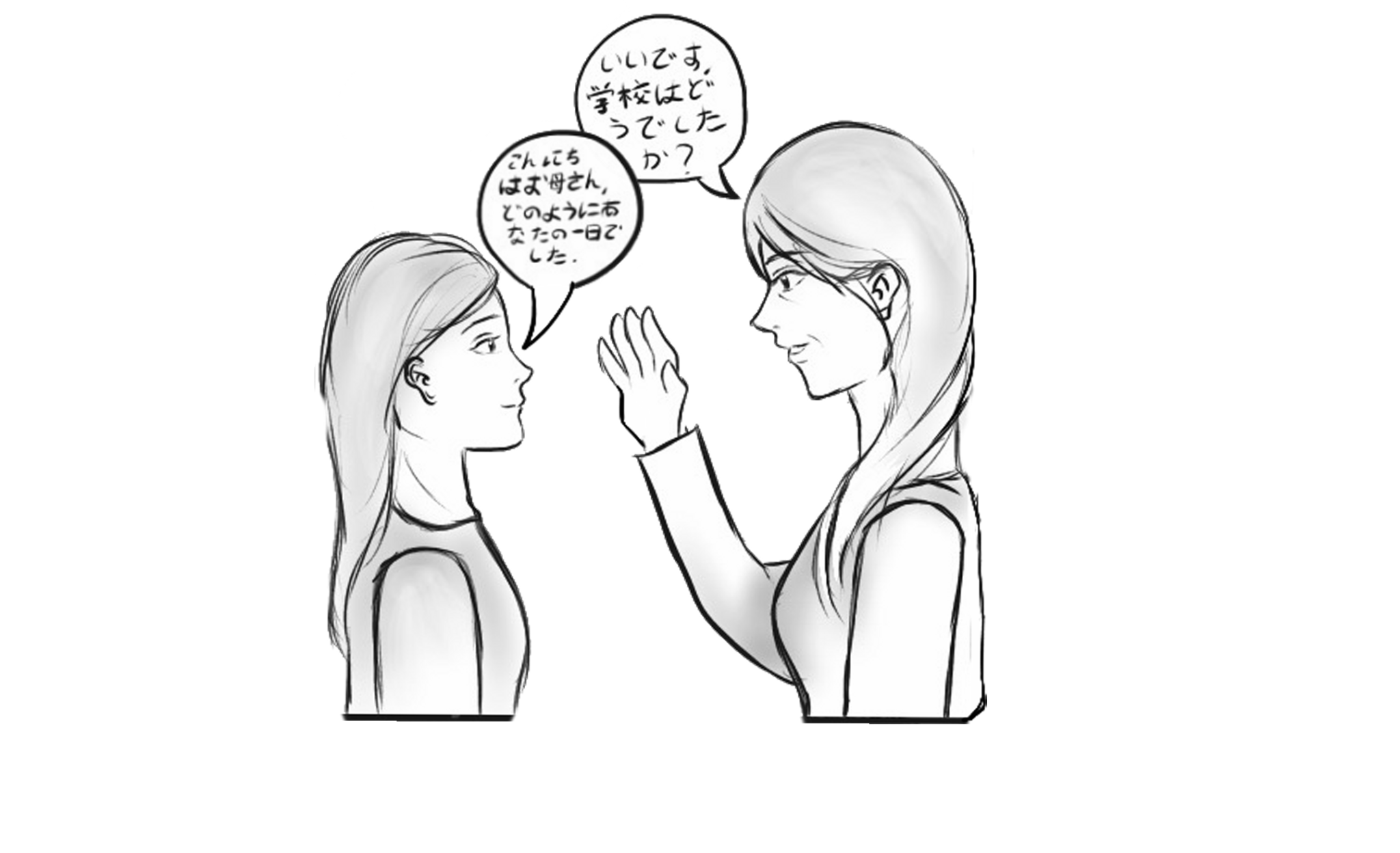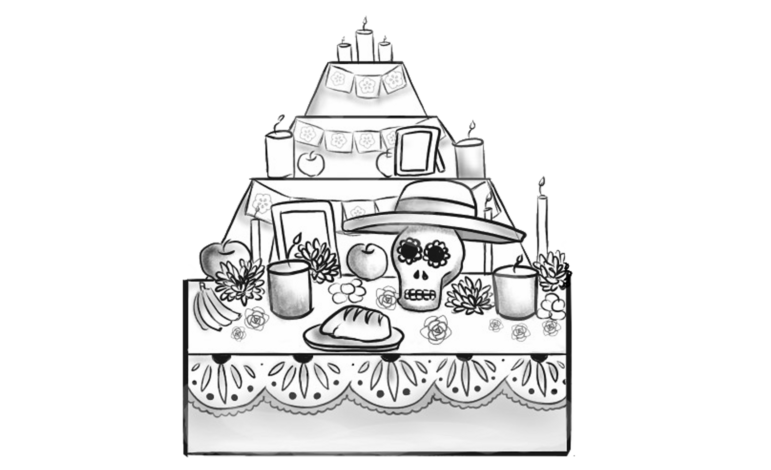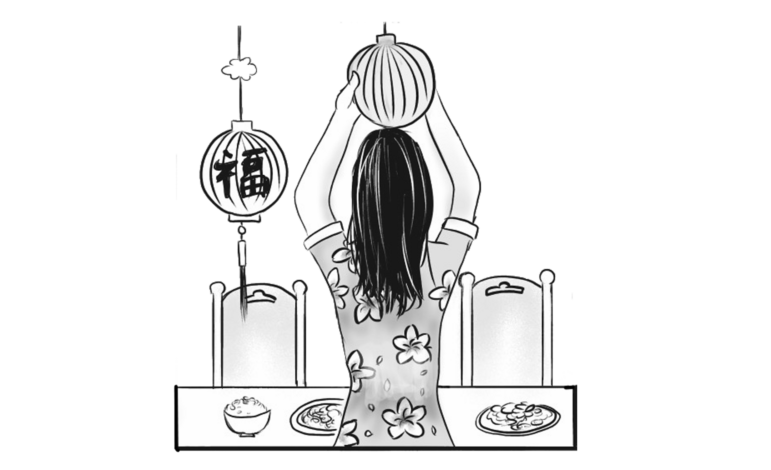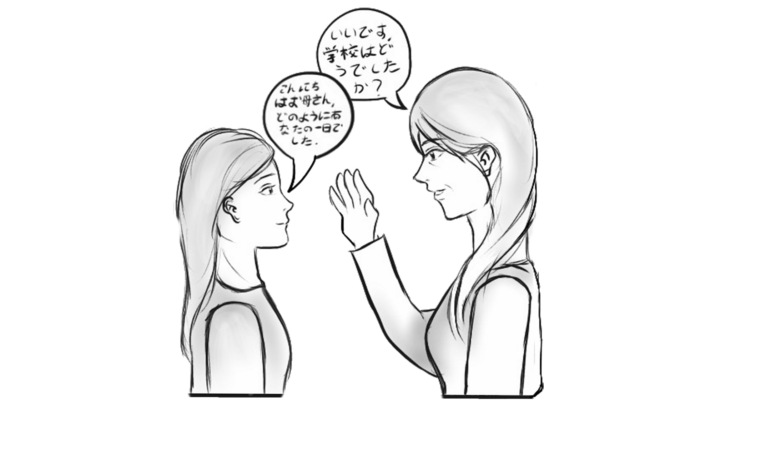
While at school, a student talks to fellow peers about the latest makeup trends, at home, she helps her family prepare for Chinese New Year dinner. Many students have to balance their immigrant roots with their lives as a n American teenager. These students learn to navigate these different norms and, in turn, experience a unique upbringing.
The hope of better education and job opportunities is a main motivator for many families. This was definitely the case for junior Sarah Wu’s family, whose mother came from Ukraine and father from Hong Kong.
“In my mom’s case, she lived in the Soviet Union, and there’s prejudice against Jews and she’s a Jew and she’s not Russian,” Wu said. “It was an oppressive political regime and communist, and she wanted to get away. On my dad’s side, they just thought that there would be more opportunities here.”
Senior Eden Vasquez’s mother immigrated from El Salvador.
“[My mother] wanted a better life here because she grew up during the Civil War in El Salvador, so every day she saw her neighbors getting killed,” Vasquez said. “It was really dangerous especially the area that she lived in. So she knew that wasn’t the life she wanted to be living in and the area she wanted to live in, so she came by herself.”

Immigrant parents and their children face a wide difference in determining what’s important. Because some parents travel for better opportunities, they have different priorities and concerns and tend to focus on what they wish they had, which may conflict with kids wanting to be kids.
“My mom really values education, because in Japan it was really competitive, so I think she carried that over with her,” junior Mayuko Boffeli said. “You have to study and do your homework. I feel like my dad is also kind of hard on me about education because they both had to work hard to get here, so they both value hard work, and I as well.”
Differences do not only end with priority, but also apply to the variation from home and school life for these kids. One common point of contrast is language.
“At home I don’t speak to my parents in English,” Boffeli said. “I speak to my mom in Japanese and my dad in Italian and when I have to say something to both of them, I have to say it in Japanese and Italian.”
While preserving culture is important for families like Bofelli’s, where she was taught to learn three languages, other families, such as Wu’s, left theirs in the past.
“My mom doesn’t have any strong ties, and she speaks English better than she does Russian,” Wu said. “My dad didn’t particularly appreciate Chinese culture and they felt no reason to have me learn about it.”

Junior Hillary Zheng, who was born in the United States, but lived in Hong Kong for 13 years, noted that her family has tried to retain their culture, but it’s become more and more challenging as time passes.
“I’m the third generation, so my grandparents have already lived here,” Zheng said. “So in each generation [retaining our culture] decreases, so my grandparents don’t even emphasize it that much, so that makes it harder for my parents to emphasize [my culture].”
With students becoming accustomed to certain norms at school and entirely different ones at home, this could also become a point of tension and potential conflict.
“My parents are very conservative. Sometimes it’s hard, but I feel like I usually just don’t bring up those topics because I know we’ll both have disagreements,” said senior Sarena Yang. “Since they’re so set in their ways I feel like I wouldn’t be able to convince them otherwise and they can’t convince me otherwise.”
But Yang also feels that this difference in opinion helps her see both sides of arguments more clearly because of that first-hand experience.
Zheng also recognizes cultural differences. Growing up, she would compare her cultural norms to others.
“[I would say] ‘Oh, they can do this. Why can’t we?’” she said. “[There would be differences in how I could] go out late or dress a type of way or anything.”

Vasquez also appreciates all that she would have been ignorant of if her mother hadn’t been an immigrant.
“I know I wouldn’t be bilingual if it wasn’t for her, and I know I wouldn’t have been introduced to certain music or certain parts of the culture, that I really enjoy, like certain folklore and stories,” Vasquez said. “There are just a lot of things that my mom has introduced me to that I wouldn’t have been able to know about or love if she hadn’t been an immigrant.”
Learning to traverse both aspects of their identity can bring these students a much broader view of the world, and build other abilities not otherwise have gained. Immigrants have gone through a lot to be here today, and understanding this instills a level of appreciation in their kids.
“I would have been OK being born here or being born in China, but I’m very thankful that my parents went through all that hard work to come here and just raised me in a nice environment and have given me all the best that they can,” Yang said. “I’ve always been very grateful for that.”




